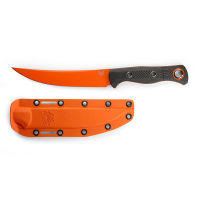
The best thing about owning laying hens is getting farm-fresh eggs. There is nothing better than going out to the nesting box to see how many eggs have been laid, collecting them, and bringing them inside. Hens start laying eggs once they reach approximately six months of age. Don't worry about finding a rooster—he is only needed if you want those eggs fertilized for hatching.
Once you collect your eggs, you want to be able to use them with the peace of mind that they're safe to eat. Whether you want to scramble them that day or fry them later, knowing how to properly clean and store all your fresh eggs is extremely important.
How to Tell If an Egg is Fresh Your hen might lay someplace other than her nesting box, which means you could stumble across a bunch of eggs and not know how long they’ve been there. I've found myself in this situation before, and even discovered a pile of eggs in my garden bed one time.
Wondering if they're still fresh? Here’s what you do:
Grab a glass of warm water. Gently place the egg in the water. Your egg will do one of three things. It might sink and lay horizontally, which tells you that it’s fresh. It might sink and stand vertically, telling you it’s still fresh, just more than a day old. Lastly, it might float, which means it's not fresh and should probably not be eaten (at least by you, but you can always feed it back to the chickens or your dog).
I love this quick and easy test, especially when you get more eggs than you know what to do with and don’t go through them fast.
How to Clean Your Eggs The next most important thing to know is how to clean your eggs. The cool thing about fresh eggs is that they don't require washing if they are clean. Freshly laid eggs have a natural coating on them called a "bloom." This is like a secret protective layer that keeps bacteria out of the egg, sealing it and keeping it fresh for months. So if your egg is clean, with no visible feces or dirt, keep the egg as is (which will keep the bloom intact) and leave it out on the counter.
However, if there is waste, another cracked egg, or something that makes the shell dirty, you might want to wash the egg. You can use one of two methods.
The first is called dry-cleaning, and that will keep the bloom intact. To do this, grab an old sponge, paper towel, or scrubber and gently scrub off the gross. The bloom will still be intact, so you can store it on the counter.
The second method is called wet-cleaning and will not keep the bloom intact. To do this, you must use warm water. If you use cold water, the egg inside will shrink and could allow for bacteria to come in. Using warm water swells the egg and keeps the barrier closed. You can rinse off your eggs or fill a bowl of warm water and gently scrub with a cloth or paper towel until clean. With this method, the bloom is no longer intact, so you will have to store these eggs in the fridge. Be sure to wipe your eggs dry after washing.
If you find some of your eggs are cracked, it's in good practice not to eat them. Since the bloom seal is broken, there is potential for bacteria to get inside. Most countries only sell eggs that have been washed and graded and no longer have a bloom intact, which is why you have to keep store-bought eggs in the fridge.
Storing Your Eggs You can store your dry-cleaned fresh eggs on the counter for one to two months. Alternatively, you can keep eggs (washed or not) in the fridge even longer, closer to six months. It's a good idea to put a date on your eggs container so you know exactly when you put them in. If you forget, refer to the freshness test above.





